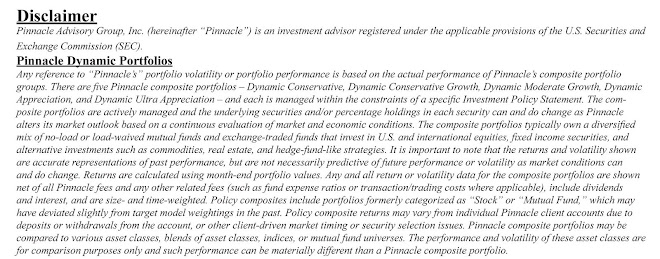Currently a theory that I believe is gaining acceptance amongst the investment community is the idea that we are entering a “new normal,” or a permanently lower state of economic growth than we experienced during the years prior to the recent financial crash. There are many good reasons why this makes great fundamental sense, including the possibilities of higher taxes, less financial innovation, increased savings, tighter credit, etc. Bill Gross of PIMCO would say that the theory has a high “common sense quotient,” and at Pinnacle we would agree.
As an analyst, one part of our job is to constantly question different market opinions, even if we happen to agree with the basic premise. As I look for flaws in this theory, I don’t think I find one conceptually on a longer term basis. Where they may be a flaw, however, is in investors’ interpretation of the timing. It seems to me that this is a long term story, which may play out over years and possibly even decades. That leaves plenty of room for shorter term cyclical upturns that could be as robust as or even more robust than the long term trend for GDP growth, which may be happening now.
In an odd sort of way, I believe this thesis is very similar to another theory from the not-so-distant-past referred to as “decoupling,” but from an opposite standpoint. The decoupling theory implied that the high-flying emerging market economies could “decouple” and continue to soar even if the developed world fell into a recession. Just like the new normal, there were good fundamental reasons that analysts were trumpeting to make their case - less debt, higher growth rates, high savings rates, expanding consumer base, etc. Back in the pre-crisis world the bulls took this theory and used it as justification for higher and higher prices of volatile securities like oil, commodities, emerging market stocks, materials stocks, energy stocks, etc., even as it was apparent that the developed world had in fact fallen into recession. For a brief period the theory was the force that allowed these assets to defy gravity and rise even as developed markets crumbled. It wasn’t until August 2008 that gravity returned and the decoupling of decoupling crushed these previously supported trades by a magnitude not seen in decades.
No one knows exactly how the new normal will play out and at Pinnacle we acknowledge that the world is still a risky place. However one would think the echoes of decoupling should keep investors from immediately accepting a new theory as fact and thus becoming overly bearish at a time when a cyclical recovery appears to be upon us.

